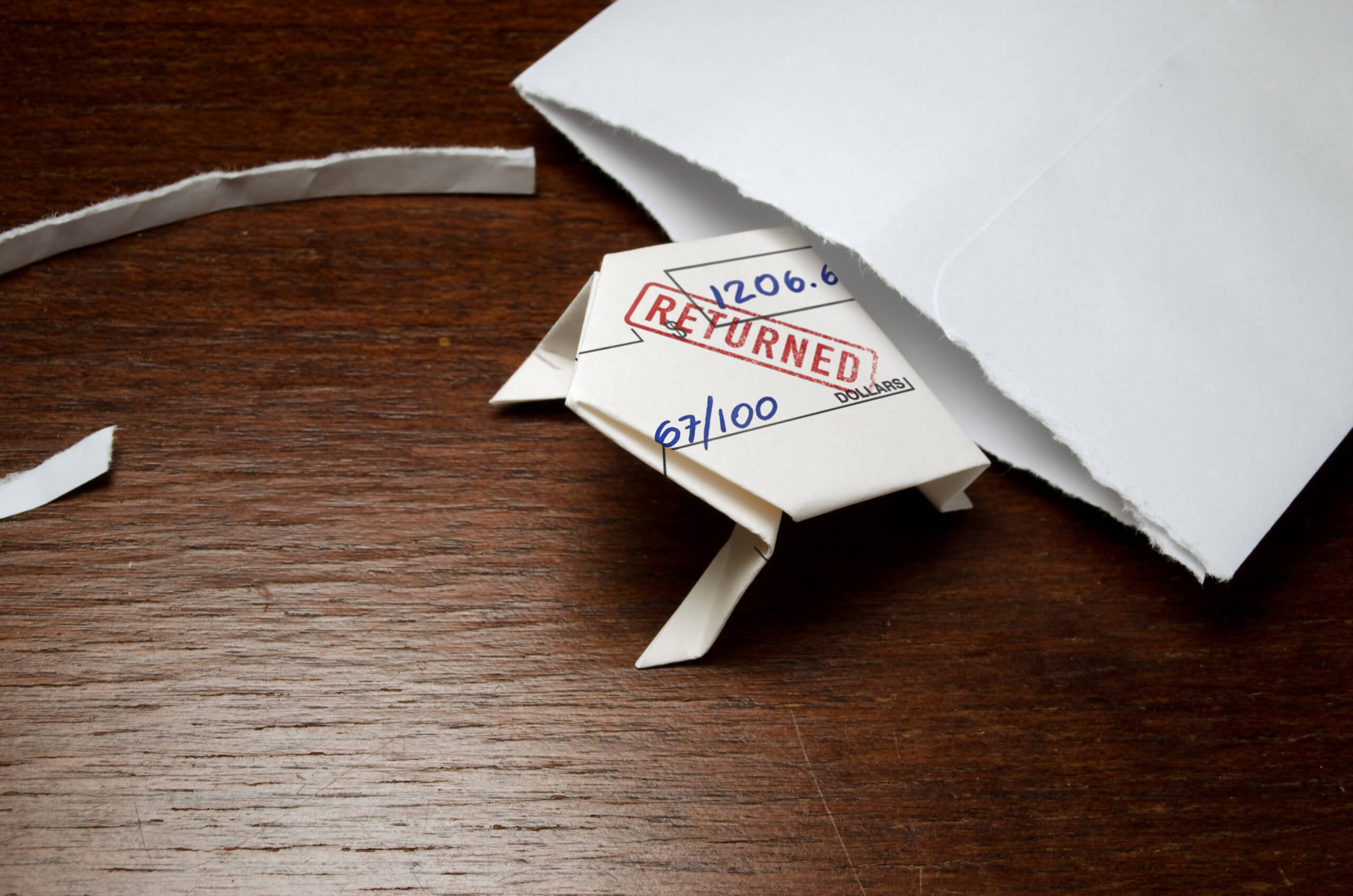You filed your return and wrote your check for taxes due. But you didn’t realize the IRS would cash the check before your bonus payment cleared or you forgot about a large outstanding item that hit your account just before the IRS payment did. Your check to the IRS bounced and the agency sent you Letter 608C, Dishonored Check Penalty Explained.
Don’t panic. If the insufficient funds were due to a timing or other error on your part, secure sufficient funds and pay your tax bill as soon as possible to avoid further penalties. You might even be able to have the penalty abated.
Will the IRS Resubmit a Check?
If your account doesn’t have enough money to cover your payment to the IRS, your bank will dishonor and return your check or electronic payment. The bank will note your check as unpayable, and the IRS will pronounce your tax bill unpaid.
Except for a short period during the pandemic when IRS offices were closed, the agency does not grant taxpayers any grace for insufficient funds. The IRS will not wait a few days and resubmit a check for payment. Instead, it will assess a dishonored check penalty and start accruing interest on your unpaid tax balance.
How are Penalties Calculated?
The IRS bases the penalty on the amount of the bad check or electronic payment. If your payment was $1,250 or more, the agency will assess 2% of the payment amount. If your payment was less than $1,250, the IRS will charge you the lower of $25 or the payment amount.
In addition, the IRS will begin charging interest on your unpaid balance including the penalty. The agency generally does not stop charging interest or assessing future penalties until your balance is paid in full.
Note, if for some reason you had to issue a stop-payment on your check or electronic payment to the IRS and it was not processed before your tax payment hit your bank account, the IRS generally will not assess a dishonored check penalty. You will still likely receive Letter 608C. If so, you can send a copy of your stop-payment documentation along with a penalty relief request to the IRS address noted on your 608C letter.
The best way to avoid dishonored check penalties is to check your account balance before mailing your check or making electronic payment to the IRS. Be sure to review your account for any outstanding checks or other payments that have not yet cleared and make sure you have sufficient funds to cover these as well as your IRS payment.
Can I Seek Penalty Relief?
Fortunately, the IRS does have a way for you to request abatement for the dishonored check penalty. If you made your tax payment in “good faith” and can document that you had reasonable cause to believe your bank account had sufficient funds, the IRS often will not charge the dishonored check penalty.
To request penalty abatement, prepare a written statement explaining why the IRS should reconsider the penalty. Include documents, such as a bank statement or letter from your bank, showing your account had sufficient funds to cover the tax payment. Mail the letter to the IRS address noted in your 608C letter. The IRS will review your written statement and respond.
Have Questions? Call the Experienced Tax Attorneys at Wiggam Law
If you received Letter 608C Dishonored Check Penalty Explained and believe you should not have been charged a penalty, we can help. The experienced attorneys at Wiggam Law can evaluate your situation and recommend a course of action. Contact metro Atlanta’s top tax attorneys by clicking here or give us a call at (404) 233-9800.

